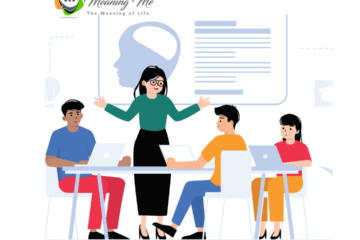Introduction
In an era where technology permeates every aspect of our lives, education has undergone a remarkable transformation. Online education, once viewed with skepticism, has emerged as a robust and credible alternative to traditional learning. This evolution is not just about the convenience of learning from home or the flexibility of setting one’s schedule. It is about real people achieving real success, often overcoming significant barriers to do so. The stories of these online learners are not only inspiring but also demonstrate the transformative power of online education.

One of the most compelling aspects of online education is its accessibility. For many, traditional education paths are fraught with obstacles, whether they be geographic, financial, or personal. Take the story of Maria Hernandez, for example. Maria grew up in a rural area where the nearest university was over a hundred miles away. With limited resources and the responsibility of caring for her younger siblings, attending a physical university was never an option. However, through online education platforms, Maria was able to pursue a degree in nursing. She attended virtual classes, completed assignments during her free hours, and participated in online forums to discuss course material with peers from around the world. Today, Maria is a registered nurse, contributing to her community and fulfilling her dreams.
For many working professionals, balancing a career and further education can seem impossible. Yet, online education has proven to be a viable solution. John Peters, a full-time software engineer, always aspired to advance his career by obtaining a master’s degree in data science. Traditional evening classes were not feasible due to his demanding job and family commitments. John enrolled in an online program that allowed him to study at his own pace, on his own time. He could access lectures during his lunch breaks, complete assignments on weekends, and interact with professors and classmates through virtual platforms. John’s dedication paid off, and he successfully earned his degree, leading to a promotion and a significant salary increase.
Moreover, online education has been a lifeline for individuals with disabilities. Sarah Thompson, a young woman with mobility issues, found traditional classroom settings to be physically exhausting and logistically challenging. Online education provided her with the means to learn without the stress of commuting or navigating inaccessible buildings. Sarah completed a degree in graphic design from her home, utilizing adaptive technologies to participate fully in her coursework. Today, she runs a successful freelance graphic design business, a testament to how online education can empower those with disabilities to achieve their professional goals.
Another inspiring story is that of Rajesh Kumar, a middle-aged man from India who had to abandon his education early due to financial constraints. Years later, Rajesh discovered online education platforms offering free and affordable courses. With determination, he completed several certifications in digital marketing. These credentials opened new job opportunities, and Rajesh now works for an international company, earning a salary that has transformed his and his family’s life. His journey highlights the global reach and impact of online education, breaking down financial and geographic barriers.
These stories underscore the potential of online education to change lives. It offers flexibility, accessibility, and a diverse array of courses that can cater to various interests and professional needs. The success stories of Maria, John, Sarah, and Rajesh illustrate how online education can provide opportunities for personal growth, career advancement, and overcoming challenges that once seemed insurmountable. As more people share their journeys, the perception of online education continues to evolve, inspiring others to embark on their own paths to success.

Breaking Barriers: Overcoming Geographical and Financial Constraints
In the traditional education system, geographical and financial constraints have long been significant barriers to accessing quality education. Online education, however, has revolutionized the way people learn, making it possible for individuals from diverse backgrounds to pursue their educational goals without being hindered by these limitations.
Geographical constraints have historically prevented many individuals from accessing higher education. People living in rural or remote areas often have limited or no access to universities or colleges, requiring them to relocate to urban centers to pursue their studies. This relocation is not only costly but also disruptive to their personal and family lives. Online education platforms have effectively eliminated the need for physical presence in a classroom, allowing students to attend lectures, complete assignments, and participate in discussions from anywhere in the world. This flexibility has opened doors for countless individuals who would otherwise be unable to pursue their educational aspirations.
One inspiring example is Maria Hernandez, who grew up in a remote village far from the nearest university. Traditional education was out of reach due to her family’s financial constraints and the responsibility of caring for her younger siblings. Online education provided Maria with a viable alternative. She enrolled in a nursing program offered by an accredited online university. With the ability to study from home, Maria managed her coursework alongside her familial duties. Her dedication and the flexibility of online learning enabled her to graduate and become a registered nurse, making a significant impact in her community.
Financial constraints also pose a significant barrier to higher education. Tuition fees, accommodation costs, and other expenses associated with traditional education can be prohibitive for many families. Online education often offers a more affordable alternative. Many online programs have lower tuition fees compared to their on-campus counterparts, and students can save on costs related to housing, commuting, and textbooks. Additionally, numerous platforms provide free or low-cost courses, making education accessible to a broader audience.
Rajesh Kumar’s story exemplifies overcoming financial barriers through online education. Forced to leave school early due to financial difficulties, Rajesh worked various jobs to support his family. He discovered online education platforms offering affordable courses in digital marketing. Rajesh diligently completed several certifications, acquiring skills that made him highly employable. He secured a well-paying job with an international company, significantly improving his family’s financial situation. Rajesh’s journey highlights how online education can be a powerful tool for social mobility, providing opportunities for individuals to break free from the cycle of poverty.

Balancing Act: Online Education for Working Professionals
For working professionals, the prospect of further education can often seem daunting. Balancing job responsibilities, personal commitments, and academic pursuits requires a significant amount of dedication and effective time management. Online education has emerged as a viable solution, offering flexibility and accessibility that traditional classroom settings often cannot provide. This modality allows professionals to advance their careers without compromising their current employment or personal lives.
One of the primary advantages of online education for working professionals is the ability to learn at one’s own pace. Unlike traditional courses with fixed schedules, online programs often offer asynchronous learning options, where course materials, lectures, and assignments are available at any time. This flexibility allows learners to fit their studies around their work schedules. For example, John Peters, a full-time software engineer, aspired to earn a master’s degree in data science to advance his career. Traditional evening classes were not feasible due to his demanding job and family commitments. By enrolling in an online program, John could study during lunch breaks, weekends, and other free times, successfully earning his degree and securing a promotion.
Online education also eliminates the need for commuting, which can be a significant time-saver for busy professionals. The time saved from traveling to and from a physical campus can be redirected towards studying, completing assignments, or attending to personal responsibilities. This convenience was crucial for Anna Lee, a marketing manager with a hectic travel schedule. The online MBA program she chose allowed her to access coursework from anywhere, whether she was at home, on a business trip, or even during flights. This level of flexibility ensured that her education fit seamlessly into her lifestyle.
Furthermore, online education often provides a diverse range of course offerings, allowing professionals to tailor their learning to their specific career goals and interests. Many online programs are designed with the working professional in mind, offering specialized courses and certifications that are directly applicable to their current job roles. This targeted learning approach can lead to immediate career benefits. For instance, Lisa Thompson, an HR manager, enrolled in an online certification course in organizational psychology. The skills and knowledge she gained were immediately applicable to her job, improving her performance and leading to a significant career advancement.
Networking opportunities are another key benefit of online education for working professionals. Online courses often bring together students from various industries and geographical locations, providing a platform for exchanging ideas and experiences. These interactions can lead to valuable professional connections and opportunities for collaboration. The global classroom environment enriches the learning experience and broadens professional networks.
Empowering Through Accessibility: Success Stories of Learners with Disabilities
Online education has emerged as a transformative force in higher learning, particularly for individuals with disabilities. Historically, traditional educational settings have posed numerous physical and logistical challenges for these learners, often resulting in barriers to accessing quality education. However, online platforms have revolutionized educational accessibility, offering a flexible and inclusive environment where learners with disabilities can thrive and achieve their academic and professional goals.

One of the primary advantages of online education for learners with disabilities is the elimination of physical barriers. Unlike traditional classrooms, which may lack adequate accessibility features such as ramps, elevators, or specialized seating, online learning platforms are inherently more adaptable. Students can access coursework, lectures, and interactive materials from the comfort of their homes, using assistive technologies tailored to their specific needs. This flexibility allows learners like Sarah Thompson, who has mobility issues, to participate fully in educational activities without the stress of navigating inaccessible physical environments.
Moreover, online education offers personalized learning experiences that cater to diverse learning styles and abilities. Many platforms provide customizable settings and tools, such as screen readers, text-to-speech software, and captioning options, to accommodate various disabilities, including visual, auditory, and cognitive impairments. These accessibility features empower learners to engage with course content in ways that are most effective for them, enhancing their comprehension and retention of information.
The story of Michael Johnson illustrates the transformative impact of online education for learners with disabilities. Diagnosed with dyslexia at a young age, Michael struggled with traditional classroom settings that often lacked the necessary support for his learning needs. Through online courses specifically designed for dyslexic learners, Michael gained access to specialized instructional techniques and assistive technologies that helped him overcome his challenges. He successfully completed a degree in computer science and now works as a software developer, leveraging his skills to create inclusive software solutions for individuals with disabilities.
Furthermore, online education promotes inclusivity by fostering a supportive and collaborative learning environment. Virtual classrooms bring together students from diverse backgrounds and geographical locations, creating opportunities for peer support, knowledge sharing, and community building. For learners with disabilities, this sense of belonging and camaraderie can be particularly empowering, as it encourages them to pursue their educational aspirations with confidence and determination.
Global Impact: How Online Education Transforms Lives Worldwide
Online education has transcended geographic boundaries, making quality learning accessible to individuals around the globe. This transformative impact is evident in how online education has empowered learners from diverse backgrounds, bridged educational gaps, and facilitated lifelong learning opportunities.
One of the most significant contributions of online education is its ability to democratize access to knowledge. In many parts of the world, particularly in rural or underserved communities, traditional educational institutions are scarce or inadequate. Online platforms provide a viable alternative, offering a wide range of courses and programs that may not be available locally. This accessibility has enabled individuals like Li Wei, a student from rural China, to pursue a degree in economics from a prestigious university abroad through online courses. Li Wei’s story illustrates how online education can break down educational barriers and open doors to opportunities that were once out of reach.
Moreover, online education fosters cultural exchange and global collaboration. Virtual classrooms bring together students and educators from different countries and cultural backgrounds, creating a rich learning environment where diverse perspectives are shared and respected. This global connectivity enriches the educational experience, exposing learners to new ideas, practices, and ways of thinking. It promotes intercultural understanding and prepares students to thrive in an increasingly interconnected world.
Another key impact of online education is its role in workforce development and economic growth. By providing accessible and affordable learning opportunities, online platforms equip individuals with the skills and knowledge needed to succeed in today’s competitive job market. This is particularly significant in developing countries where access to traditional higher education is limited. Online courses in fields such as technology, business, and healthcare enable learners to acquire industry-relevant skills and certifications, enhancing their employability and contributing to economic development.
The story of Maria Santos from Brazil exemplifies the transformative potential of online education in workforce development. Maria, a single mother working as a nurse’s assistant, enrolled in online courses in healthcare management. Despite her busy schedule and financial constraints, Maria completed her studies and earned a certification that allowed her to advance to a managerial position in her hospital. This career advancement not only improved Maria’s financial stability but also empowered her to make a greater impact in healthcare delivery within her community.
Future Prospects: The Expanding Role of Online Learning in Personal and Professional Development
The future of education is increasingly digital, with online learning poised to play a central role in personal and professional development. As technological advancements continue to reshape how we learn and work, online education offers unprecedented opportunities for individuals to acquire new skills, advance their careers, and adapt to evolving job market demands.
One of the key advantages of online learning is its flexibility. Unlike traditional education formats, online courses allow learners to access content at their convenience, accommodating diverse schedules and personal commitments. This flexibility is particularly valuable for working professionals seeking to upskill or reskill without interrupting their careers. For example, Sarah Davis, a marketing manager, enrolled in an online digital marketing course to stay abreast of industry trends and enhance her skills. She could complete assignments and participate in discussions after work hours, fitting her studies around her job responsibilities and family life.
Furthermore, online learning enables personalized and adaptive learning experiences. Advanced analytics and artificial intelligence algorithms can track learner progress, identify strengths and weaknesses, and tailor course materials to individual needs. Adaptive learning platforms, such as personalized quizzes and interactive simulations, provide learners with targeted feedback and support, enhancing comprehension and retention of information. This personalized approach ensures that learners can achieve mastery at their own pace, leading to more effective learning outcomes.
The future of online learning also lies in its integration with emerging technologies. Virtual reality (VR) and augmented reality (AR) are transforming how educational content is delivered, offering immersive and interactive experiences that simulate real-world environments. For instance, medical students can practice surgical procedures in a virtual operating room, gaining hands-on experience in a safe and controlled setting. These technologies not only enhance learning engagement but also bridge the gap between theoretical knowledge and practical application.
Moreover, online education is increasingly recognized and valued by employers worldwide. As the global job market becomes more competitive and digitally oriented, employers seek candidates with relevant skills and credentials acquired through online learning platforms. Recognizing this trend, universities and educational institutions are expanding their online course offerings and partnering with industry leaders to develop curricula that meet current industry needs.

Conclusion
The success stories of online learners underscore the transformative impact of online education in breaking down barriers and empowering individuals worldwide. From overcoming geographical and financial constraints to balancing work and personal commitments, online education has provided flexible and accessible learning opportunities for diverse learners. Moreover, it has empowered individuals with disabilities to achieve academic and professional goals previously hindered by traditional educational settings.
Looking ahead, online education’s role in global connectivity, workforce development, and personal growth is poised to expand further. As technology advances and educational platforms evolve, online learning will continue to play a pivotal role in equipping learners with the skills and knowledge needed to succeed in a dynamic and interconnected world. By fostering inclusivity, enhancing learning experiences, and adapting to emerging trends, online education remains a catalyst for innovation and social mobility, ensuring that individuals can pursue their educational aspirations and contribute meaningfully to society regardless of their circumstances.
Stay Tune MeaningMe The Meaning of Life
FAQ: Online Education Success Stories
What are some common themes in online education success stories?
Common themes include overcoming obstacles, achieving career advancement, acquiring new skills, balancing education with personal responsibilities, and finding new passions through online learning.
How have individuals used online education to change their careers?
Many individuals have used online education to pivot into new industries, gain certifications that enabled career changes, or develop skills that led to promotions and higher-paying jobs. Success stories often highlight people who transitioned from unrelated fields to technology, healthcare, or digital marketing, for example.
How do learners typically overcome challenges in online education?
Learners often overcome challenges by leveraging support from online communities, using effective time management techniques, setting clear goals, seeking help from instructors, and staying motivated by focusing on their end goals.
What role do online education platforms play in student success?
Online education platforms provide flexible learning environments, a wide range of courses, access to expert instructors, and resources such as forums, mentorship programs, and career services that support student success.
How do online education success stories inspire others?
Success stories inspire others by showcasing real-life examples of how online education can lead to personal and professional transformation. They demonstrate that with dedication, perseverance, and the right resources, anyone can achieve their educational and career goals through online learning.



